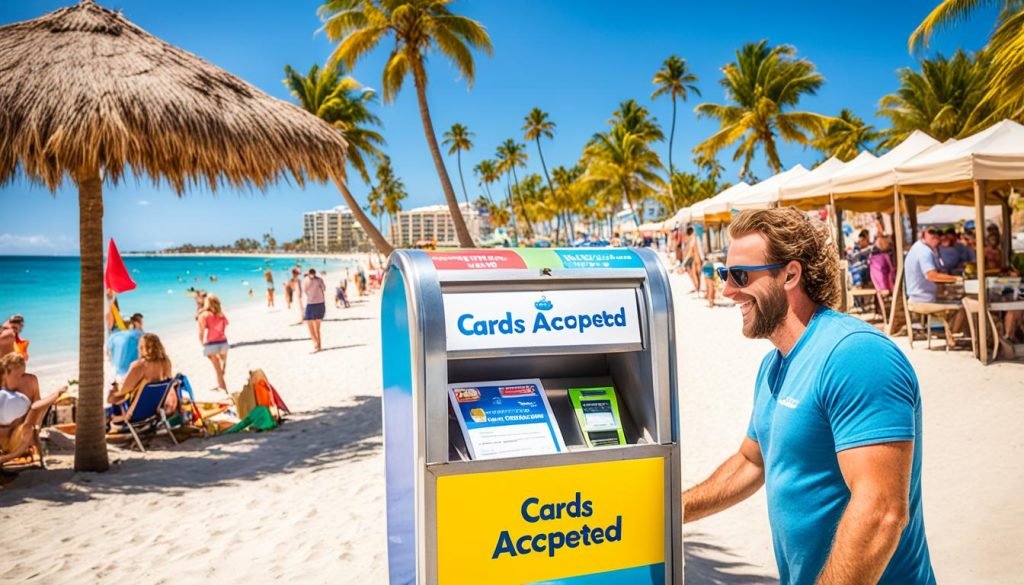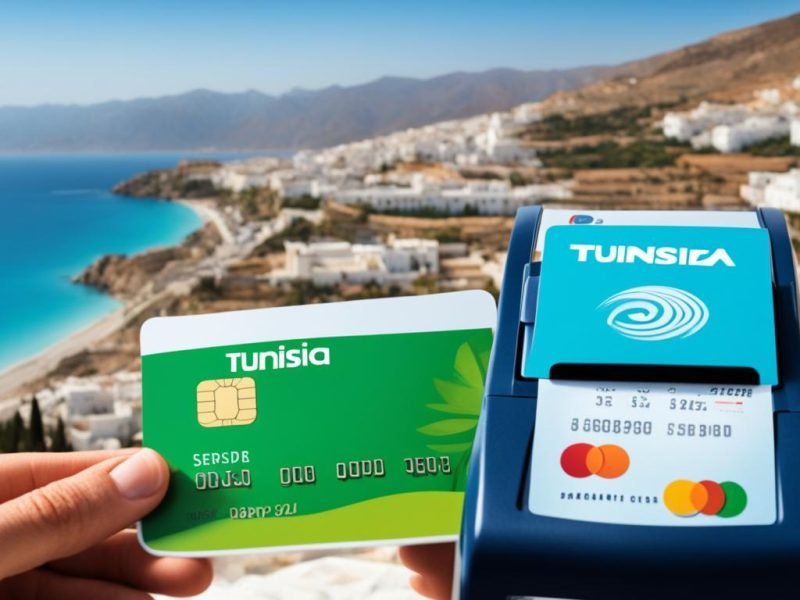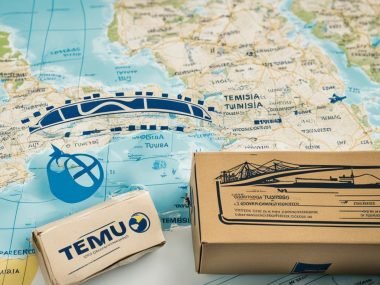Imagine the convenience of seamless transactions anywhere you go, only to find out that this isn’t a globe-spanning reality. Here’s an eye-opener: while Tunisia is a modern nation that teems with rich culture and beautiful vistas, your experience with Tunisia credit card usage may not be as smooth as you’re used to. While it’s possible to be paying with a credit card in Tunisia, it’s crucial to understand the specifics to avoid any bump in your journey. With a mix of old-world charm and modern amenities, knowing your Tunisia payment options is key to a hassle-free adventure. A prominent tip for travelers is to ensure compatibility of your foreign credit card in Tunisia, as the local financial landscape may present unique challenges.
Whether you’re wandering through the ancient streets of Carthage or basking on the sunlit beaches of Sousse, having the right Tunisia travel money advice can mean the difference between a memorable holiday and a logistic nightmare. It’s not only about having access to funds but also about the how and where that can shape your travel experience in this vibrant Mediterranean gem.
Key Takeaways
- Understanding the local financial ecosystem is crucial for Tunisia credit card usage.
- Come prepared with multiple Tunisia payment options for a stress-free stay.
- Not all foreign credit cards may work ubiquitously in Tunisia, so do your research beforehand.
- Stay informed with practical Tunisia travel money advice to maximize your enjoyment.
- Despite the challenges, you can still enjoy the convenience of paying with a credit card in Tunisia at various establishments.
Understanding Tunisia’s Currency Regulations
When planning your trip to Tunisia, it’s crucial to comprehend the financial framework of the country, beginning with its currency system. The Tunisian Dinar operates as a closed currency, which places certain restrictions on its use, especially concerning Cash vs credit card in Tunisia, and the Importing and Exporting Tunisian Dinar.
What is a Closed Currency?
A closed currency signifies that the currency cannot be freely traded on the international exchange market. For travelers, this means that you cannot usually buy or sell Tunisian dinars outside of Tunisia’s borders. The significance of this classification becomes particularly relevant when considering payment methods and handling cash during your travels. Opting for credit cards can often be a convenient alternative to avoid the limitations set on the Tunisian dinar.
Restrictions on Importing and Exporting Tunisian Dinar
Due to the designation of the Tunisian dinar as a closed currency, there are strict regulations you must follow. The laws of Tunisia prohibit the importing and exporting of its currency, which necessitates that you exchange foreign currency only within the nation’s confines. Failing to adhere to these regulations can result in financial penalties. It is advisable to spend or exchange your remaining dinars while still in Tunisia, as you won’t be able to do so once you leave.
To assist you further, here is a table highlighting some of the Dos and Don’ts regarding managing Tunisian currency:
| Do | Don’t |
|---|---|
| Exchange foreign currencies within Tunisia | Attempt to import/export Tunisian dinars |
| Use credit or debit cards wherever possible | Circumvent official currency exchange locations |
| Keep official bank or exchange receipts for currency exchanges | Exchange more currency than necessary, as re-exchange rules are strict |
| Consider cash alternatives like prepaid travel cards | Overlook the benefits of checking card policies before travel |
While managing your finances in Tunisia, you’ll find alternatives to cash such as using credit cards to be particularly useful, in light of the closed currency status. However, always ensure you are mindful of merchant acceptance and the possible fees associated with Cash vs credit card in Tunisia.
ATM Availability and Card Acceptance in Tunisia
Travelers to Tunisia can often breathe a sigh of relief knowing that access to funds is convenient, thanks to the fairly widespread ATM availability Tunisia offers. While on your travel, you will find that Visa card acceptance Tunisia is quite prevalent, giving you the freedom to withdraw cash as needed across various cities and tourist hotspots.

Visa and Maestro Card Accessibility
Many banks across the country, including the reputable Bank of Tunisia and BIAT, provide services for Maestro cardholders as well. This underscores the encouraging level of Visa card acceptance Tunisia maintains, ensuring that your transactions remain hassle-free. It’s essential, however, to have a diverse mix of payment options, since card acceptance can vary from one place to another.
Connectivity Issues and Mastercard Authorization
Travelers utilizing a Mastercard should be prepared for potential setbacks. Although Mastercards are widely used in many countries, Mastercard acceptance in Tunisia might occasionally be hindered by connectivity problems, especially in smaller shops or more remote areas. This limitation doesn’t mean your Mastercard won’t be useful, but rather that it’s wise to have alternative modes of payment available for those times when you might encounter a glitch in the authorization process.
The Pros and Cons of Using Credit Cards in Tunisia
When traveling to Tunisia, you may be contemplating using a credit card in Tunisia for your expenses. This financial tool does come with its share of advantages for international travelers such as yourself. One of the primary benefits is the security it offers; carrying less cash can mean fewer risks of loss or theft. Moreover, transactions made with credit cards often come with consumer protections, including certain safeguards under Section 75 of the Consumer Credit Act which may cover purchases of significant amounts.
However, it’s essential to consider the potential downsides associated with credit card acceptance in Tunisia. Users frequently encounter high fees for foreign transactions, with rates generally falling between 2.75% and 2.99%. Additionally, the costs for cash withdrawals using a credit card can be exorbitant. To mitigate such fees, some savvy travelers opt for credit cards that are specifically designed for overseas use, which can offer lower rates on international spending.
Nevertheless, even these specialized cards can incur high interest charges when used for cash advances. Such immediate interest accruals can render cash withdrawals quite costly. Because of this, it is prudent to reserve credit card cash advances for emergencies and to explore other payment options whenever possible.
Given these factors, you’ll need to balance the convenience of credit cards against the associated costs. Here’s a quick overview to help you weigh your options:
| Pros | Cons |
|---|---|
| Increased security against theft | High fees for foreign transactions |
| Consumer protections for certain purchases | Expensive charges for cash withdrawals |
| Convenience of cashless payments | Immediate interest charges on cash advances |
As you prepare for your journey, keep these points in mind to help ensure a seamless and financially savvy experience in Tunisia. Remember, thoughtful planning and understanding of credit card acceptance in Tunisia can make all the difference in your travels.
Choosing the Best Card for Your Tunisian Trip
When embarking on a journey to Tunisia, it’s vital to carefully consider your payment methods. The choices you make can have significant impacts on both convenience and cost-effectiveness. Below we delve into the options, highlighting how credit card protections in Tunisia and debit card use in Tunisia can influence your travel experience.

Credit Card Protections and Charges
Opting for a credit card as your travel companion does come with reassuring protections. In Tunisia, these safeguards are crucial, particularly against fraudulent transactions or purchases of goods that fail to meet expectations. Yet, you must be mindful of the additional costs associated with foreign transactions and cash withdrawals. To sidestep steep interest rates, consider settling your credit card balances promptly each month.
The Utility of Debit Cards and Prepaid Travel Cards
Debit cards offer their own set of conveniences. They generally ensure direct access to your funds, making them practical for everyday transactions. However, similar to credit cards, they can also incur fees abroad. Prepaid travel cards are a third option. They allow you to set a travel budget ahead of time and, importantly, are not tethered to your bank account, mitigating the risk of theft or loss. But remember, they can neither be recharged with Tunisian dinar nor do they escape from other charges such as card reloading or replacement fees.
| Payment Method | Pros | Cons | Tips |
|---|---|---|---|
| Credit Cards | Consumer protections, Widely accepted in hotels and larger shops | Foreign transaction fees, Interest charges on cash withdrawals | Pay off balance monthly to avoid interest |
| Debit Cards | Direct access to funds, Useful for cash withdrawals | Cash withdrawal charges, Potential for theft or loss | Monitor account regularly for unauthorized transactions |
| Prepaid Travel Cards | Good for budgeting, No link to bank account | Cannot top up with Tunisian dinar, Possible reloading fees | Load with sufficient funds before departure |
Can You Use Credit Card In Tunisia?
As you plan your travel itinerary to Tunisia, understanding the payment landscape is crucial. In recent years, financial transactions have evolved, and Credit card use in hotels Tunisia reflects this change. Many travelers, like you, enjoy the convenience and security of using credit cards over cash, especially in hospitality establishments.
Credit Card Use in Hotels, Shops, and Online Payments
When staying at Tunisian hotels, you’re likely to find that many, particularly those that cater to an international clientele, readily accept credit cards. This cashless option extends beyond accommodations to larger retail stores and various online payment platforms, providing a seamless shopping and transaction experience. Moreover, with online payments Tunisia becoming more integrated, the convenience of booking tours, services, or even local accommodations from anywhere has significantly improved your travel flexibility.
Challenges with Traveler’s Cheques and Cash Alternatives
Despite the growing acceptance of credit cards, some traditional forms of travel money—like traveler’s cheques—are experiencing a steady decline in usability. While once a staple for international travelers, the Traveler’s cheques acceptance Tunisia is relatively low, and cashing them can be a hassle, burdened by steep fees. Consequently, it’s advisable to plan around using more universally accepted payment methods, such as credit cards, ensuring reliable access to funds and avoiding unforeseen expenses.
Cost Considerations When Travelling to Tunisia
As you set your sights on Tunisia, a nation whose charm has not gone unnoticed by travelers worldwide, it’s wise to keep in mind the cost of travel in Tunisia to ensure a trip that’s not just memorable but also economically savvy. Despite the increase in popularity and associated costs, Tunisia remains an inviting destination, offering more bang for your buck than many European counterparts. Whether you’re eyeing a cozy hostel stay or a comfortable hotel room, you’ll find options ranging from as low as $5 up to a moderate $20 per night, catering to the budget-conscious and those seeking a touch of luxury.
When planning your culinary adventures, anticipate spending around $15 to $20 for a delightful dinner for two at a mid-range restaurant. Equipped with this knowledge, you can dive into Tunisia’s gastronomic delights without the aftertaste of surprise expenses. Your journey in Tunisia extends beyond accommodations and dining to a wealth of experiences that promise both excitement and relaxation. From sandy beaches to historical sites, remember to factor these into your financial considerations.
Another vital facet of your Tunisia travel money advice is to be acutely aware of the payment methods at your disposal. The selection of the right card can greatly influence your trip’s cost-effectiveness, with transaction fees sometimes being an unwelcomed guest on your statement. Moreover, while the logistics of currency exchange may seem daunting given the restrictions on the Tunisian dinar, rest assured that well-trodden paths at the airport are paved with the welcome mats for major currencies like the British pounds, euros, and US dollars. This allows for simple, convenient transactions upon arrival and departure. Your financial savvy will be your trusted companion, ensuring a stress-free sojourn in the heart of the Mediterranean.







